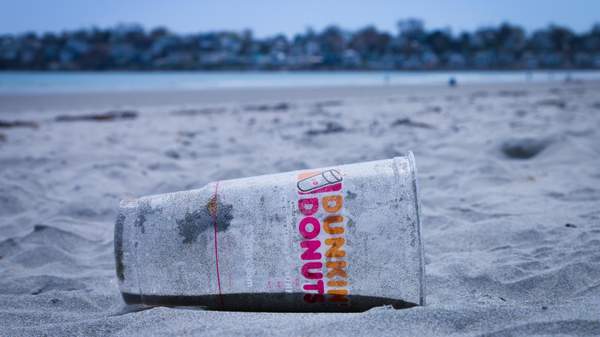Overview
Australia is getting accustomed to life without single-use plastic bags, but Europe is going one step further, with the European Union today voting to ban ten single-use plastic items by 2021.
The European Parliament first drew up the plan in May last year, which is designed to specifically combat the growing amount of plastic that's clogging up the world's oceans. The ban will target ten items that are most frequently found on beaches, including plastic cutlery, plates, cups, stirrers and straws, as well as cotton buds and balloon sticks. This comes after researchers predicted that plastic will outweigh fish in our oceans by 2050.
By 2029, all EU members will also be required to collect 90 percent of single-use plastic beverage bottles for recycling, while awareness campaigns will ramp up for the reduced consumption of other single-use products and countries will need to fund the public clean-up of litter — such as tobacco filters and fishing great — from beaches and oceans.
A year later, in 2030, the EU is aiming to make all of its plastic packaging reusable or recyclable. You can dive into the nitty gritty of its plan here (if you please).
The European Parliament passed the ban on Wednesday, March 27, and member states will have two years years to implement the legislation into their own national law.
It is the latest recognition that the war on waste is one that needs serious attention. The British parliament announced plans to go plastic-free early last year, France will ban plastic plates, cups and cutlery from 2020, while Hobart will become the first Australian city to ban single-use plastics. And that's on top of the flurry of supermarkets, big name brands, well-known food chains and furniture behemoths making their own commitments to reduce, recycle or eradicate single-use plastics from their operations.
The European Union's single-use plastic ban will be introduced by 2021.
